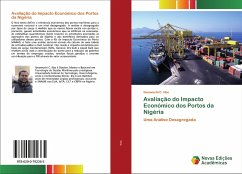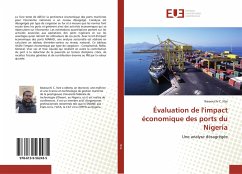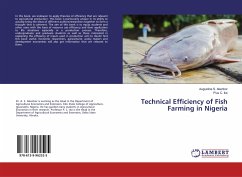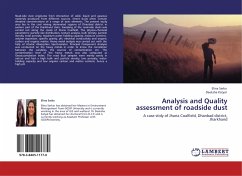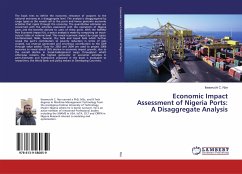
Economic Impact Assessment of Nigeria Ports: A Disaggregate Analysis
Versandkostenfrei!
Versandfertig in 6-10 Tagen
33,99 €
inkl. MwSt.

PAYBACK Punkte
17 °P sammeln!
The book tries to define the economic relevance of seaports to the national economy at a disaggregate level. The analysis is disaggregated by cargo types as the vessels call to the ports and hence generate economic activities that ripple through the economy. The quantitative estimates are concerned with the activities associated with the operations of Nigeria ports and the benefits derived to users of these ports. With the MARAD Port Economic Impact Kit, a sector analysis is made by computing an input-output table at national level. This reveal economic impact by cargo types: Containerized, Ro...
The book tries to define the economic relevance of seaports to the national economy at a disaggregate level. The analysis is disaggregated by cargo types as the vessels call to the ports and hence generate economic activities that ripple through the economy. The quantitative estimates are concerned with the activities associated with the operations of Nigeria ports and the benefits derived to users of these ports. With the MARAD Port Economic Impact Kit, a sector analysis is made by computing an input-output table at national level. This reveal economic impact by cargo types: Containerized, RoRo, General, Dry bulk and Liquid bulk which further reveal the port's contribution to poverty reduction in terms of jobs created, tax revenue generated and enormous contribution to the GDP through value added. Data for 2002 and 2004 are used to project 2006 scenarios to reveal about 30% decline in economic impact growth; due to the overall decline in break-bulk/general cargo throughput whichotherwise remains the highest generator of economic activities in ports.Estimates and framework proposed in the book is invaluable to researchers, the World Bank and policy makers in Developing Countries.



